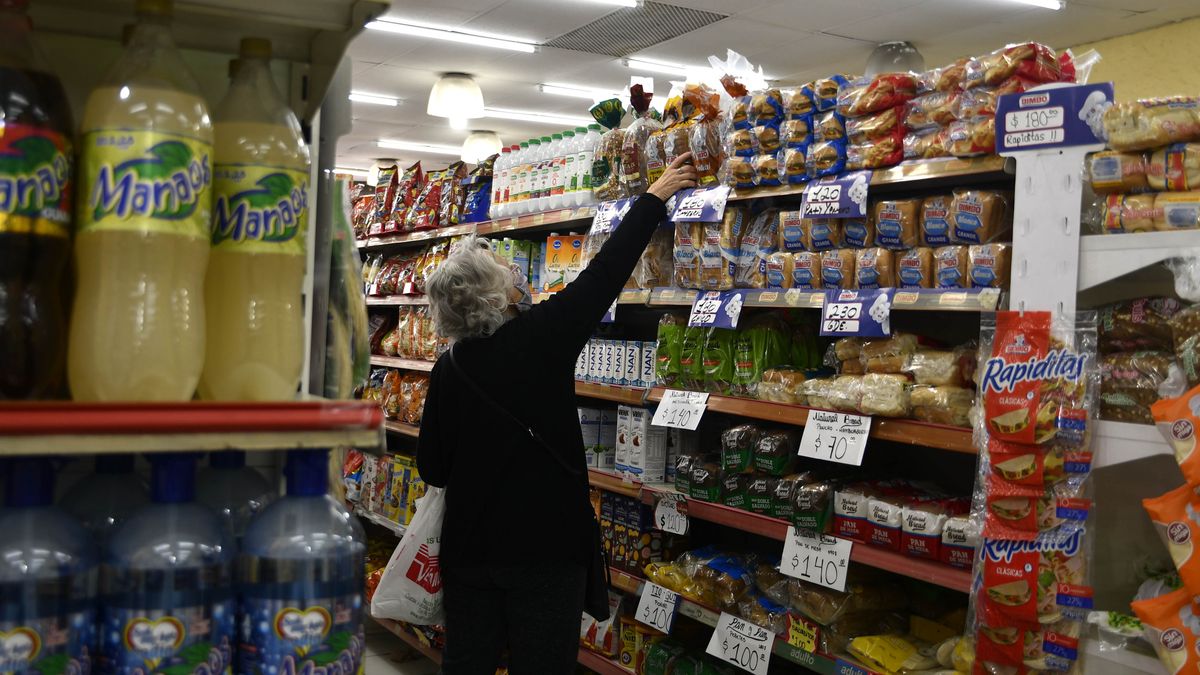“It is not a negotiation”, explains the Ambit an important producer of basic food basket products. “The Secretary tells you the product and at the price she wants you to sell it.” This is the reason why the Secretary of Commerce had to extend the deadline to receive responses from suppliers.
Domestic Trade List.pdf
In the case of supermarkets, the situation is different since the commitment of the marketing chains is to comply with transferring the “frozen” prices they receive from suppliers. Although they are not satisfied with this “freezing” of prices because the government puts them in a role of “police”. It is that supermarkets will be the visible face for consumers to find the “1650 products at frozen prices” and this places them in an uncomfortable position: “we will have to control our suppliers”, they complain, or what is worse “Report them if there are missing.”
At yesterday’s meeting the weather was not very good. There were cases of companies that the product requested by the Secretary of Commerce that appears in the list represents the bulk of their production. “I can’t work at a loss,” they complain.
“The problem is that for the government we take it with shovels and they do not take into account, for example, the drop in consumption”, commented to Ambit a major food producing company. “The drop in canned food so far this year was 10%.”
Another manufacturer of products for the basic basket explains “in 2011 Copal, which groups together food and beverage companies, employed 500 thousand people, today 400 thousand,” he showed how the sector is doing.
These numbers explain the resistance faced by the authorities to comply with the request of the Secretary of Commerce.
The list of products that the government aspires to be on the shelves as soon as possible includes food products (noodles, preserves, cookies, oil, sugar, herb, milk, etc.) of toilet, (deodorants, sunscreen, creams, creams shaving, toothpaste, etc.) drinks, among others. These products will have to be throughout the country.
Some companies had the possibility to adjust their prices in September in accordance with what was established by the former secretary, Paula Español. But, there are other companies that did not get a price update.
In general, the prices of the manufacturers of products of the basic basket have been having delays in their prices, as they need.
“We have been participating first in Maximum Prices, after Care Prices, that is, we never increase without the authorities agreeing,” they explain.
According to a report by Ecolatina, “In the Maximum Prices program, the rise of these products was 15 pp below general inflation in 2020. For this reason, the disarmament of the program (ended in June) accelerated the prices of this group of products, which went from showing an inflation of less than 1% in the months of full freeze to average increases of almost 4% between April and September of this year ”.
The latest survey by Scentia that includes supermarkets and self-services shows that in September there was a 2% variation in volumes but annualized sales are still negative with a drop of -4.7%.
In the government there is another look, they argue that it is an “agreement of the parties” that there were products whose prices rose 10 to 25% “,” that approximately 50 companies represent almost 72% of the products on the list “,” that did not the profitability of any company is affected ”and that it is time to“ win by quantity, not by price ”.
David William is a talented author who has made a name for himself in the world of writing. He is a professional author who writes on a wide range of topics, from general interest to opinion news. David is currently working as a writer at 24 hours worlds where he brings his unique perspective and in-depth research to his articles, making them both informative and engaging.




